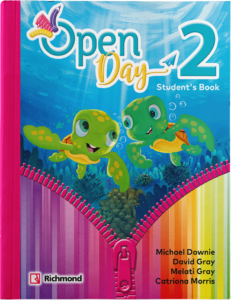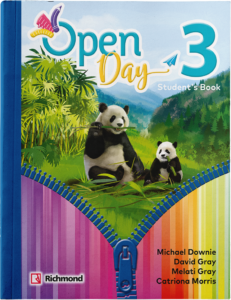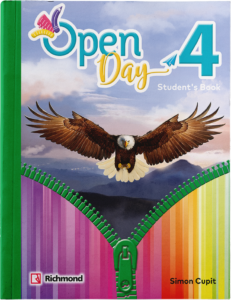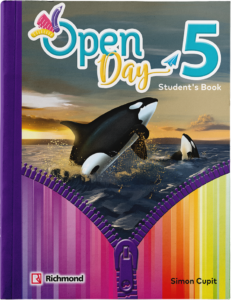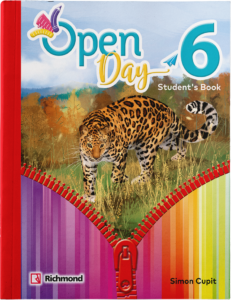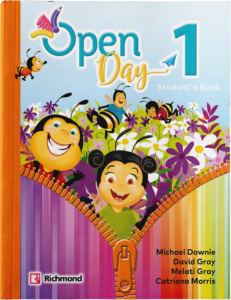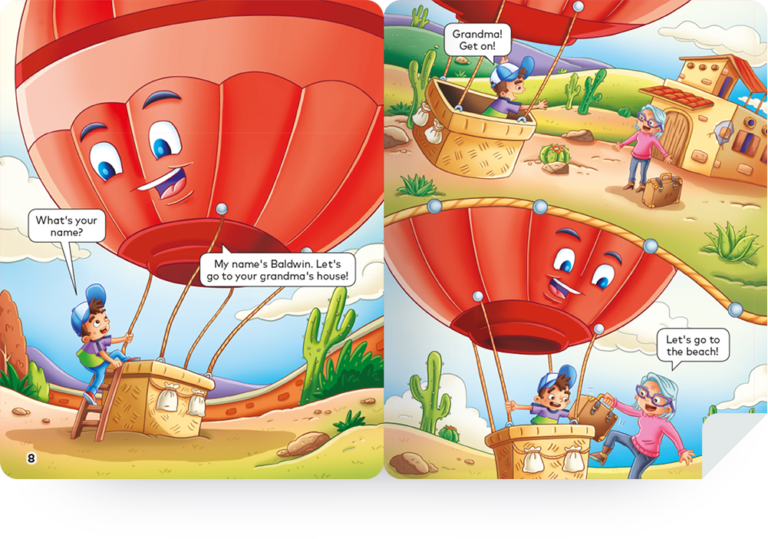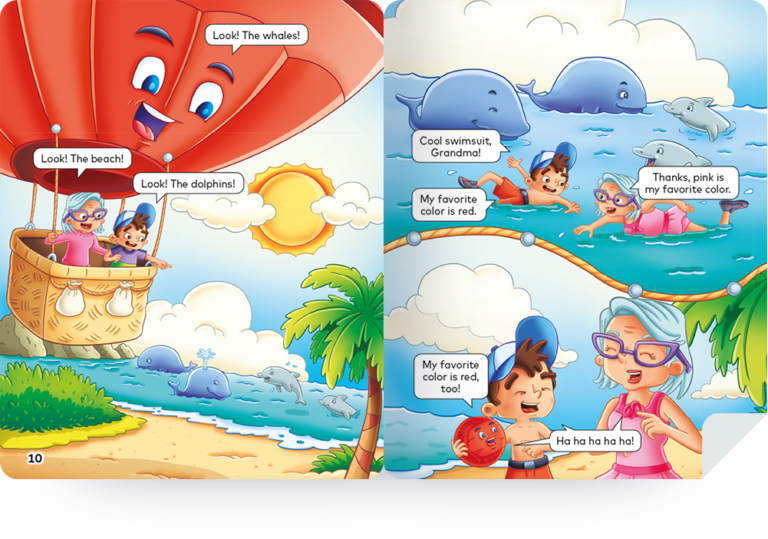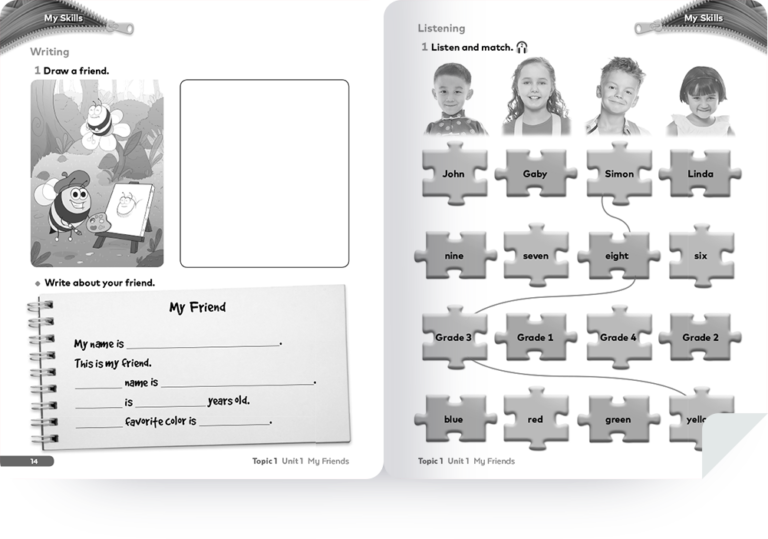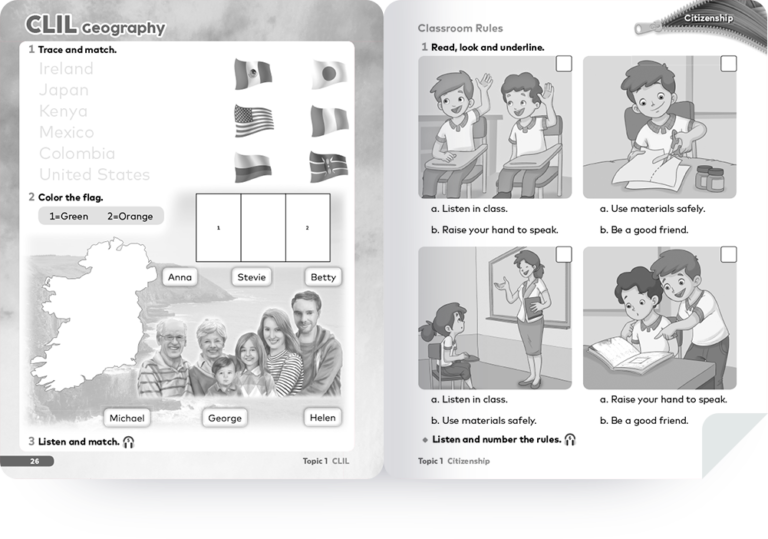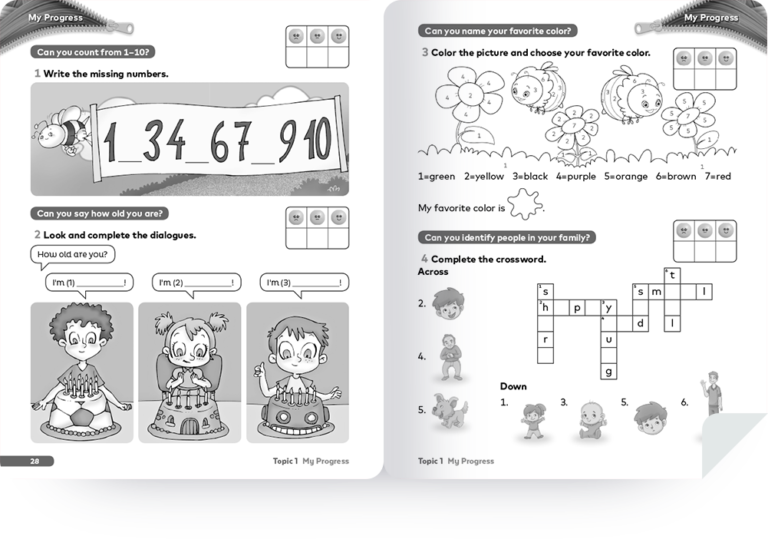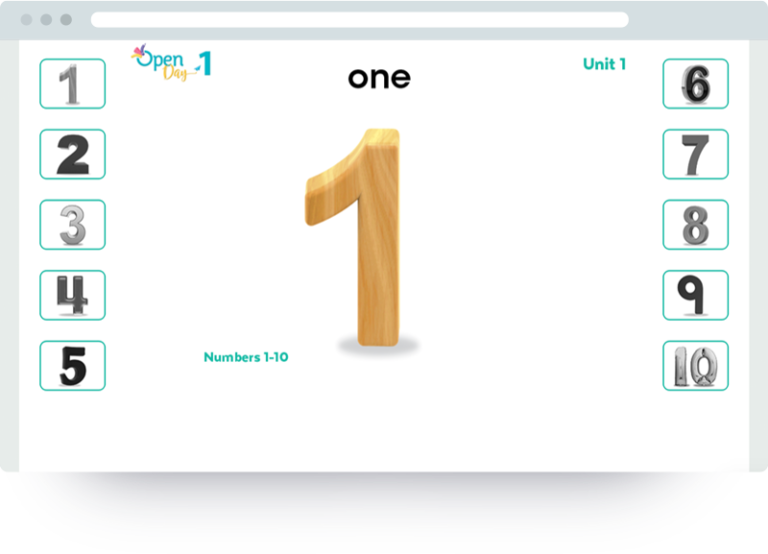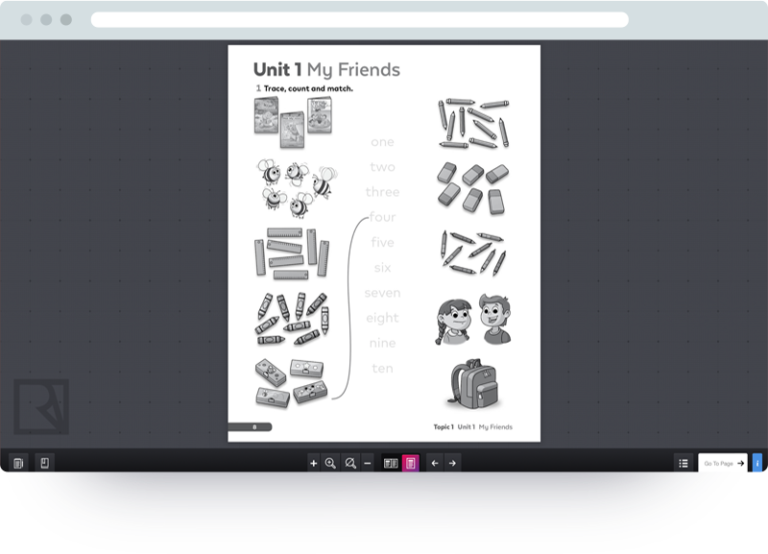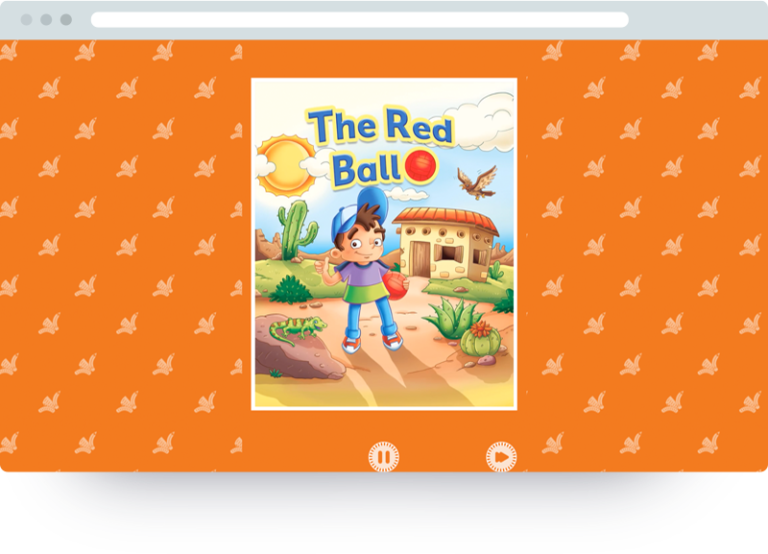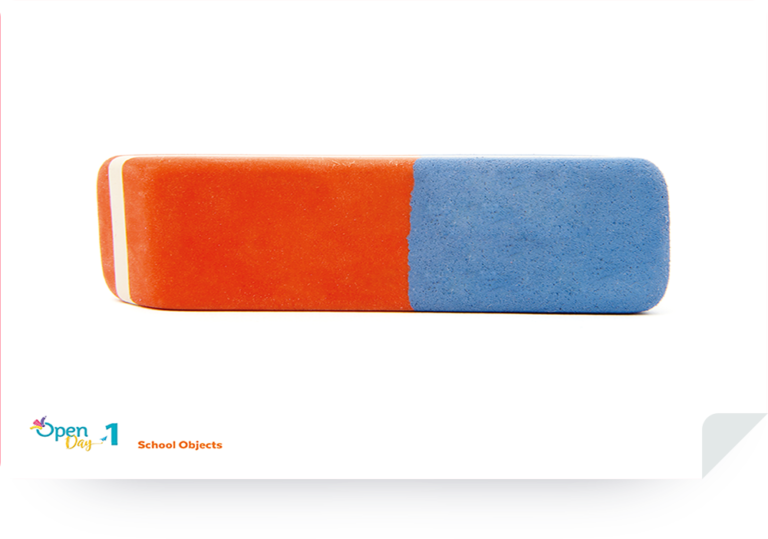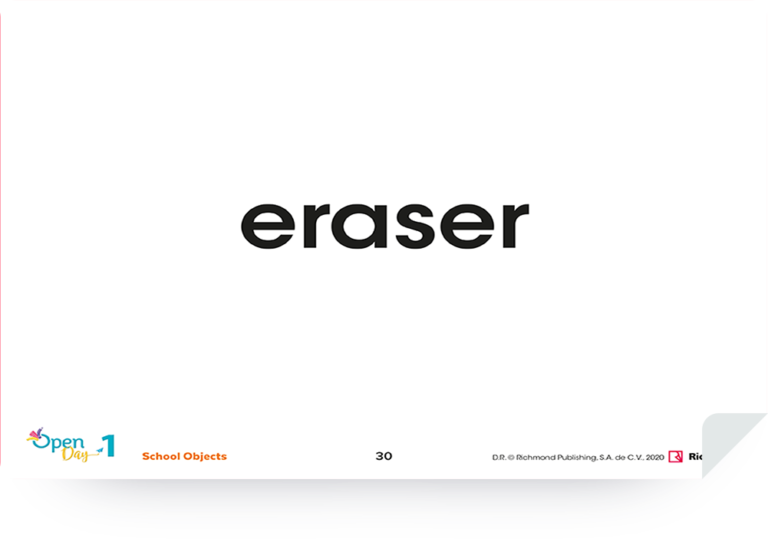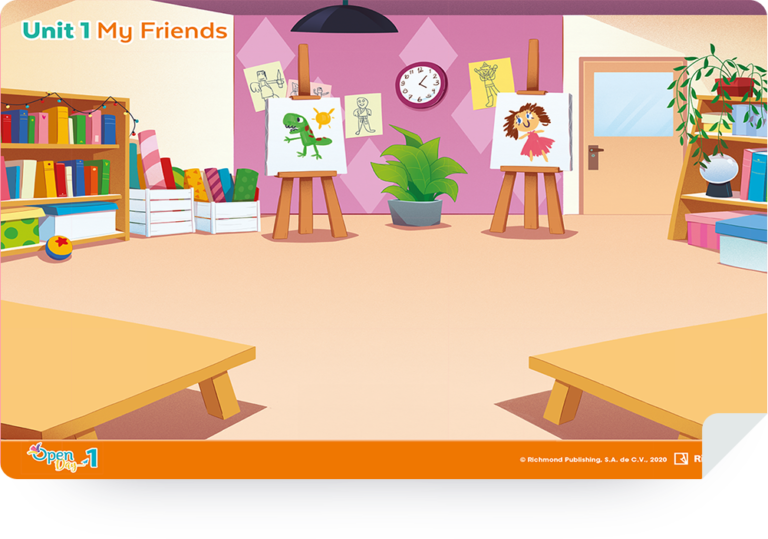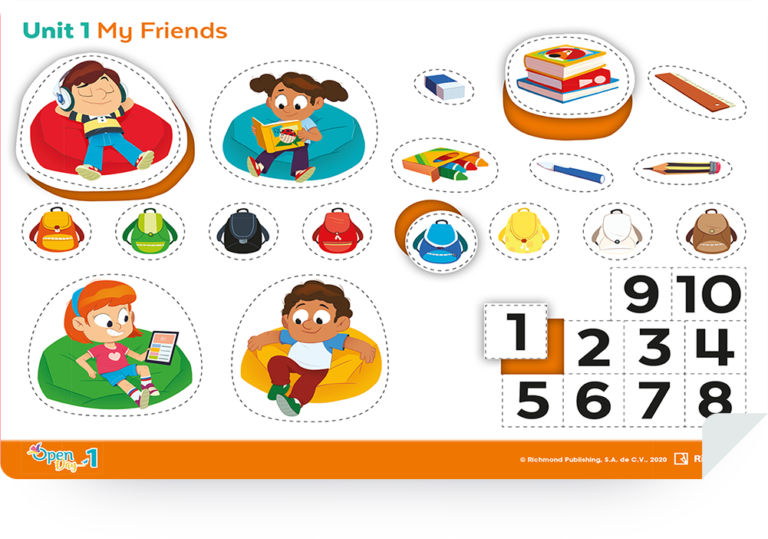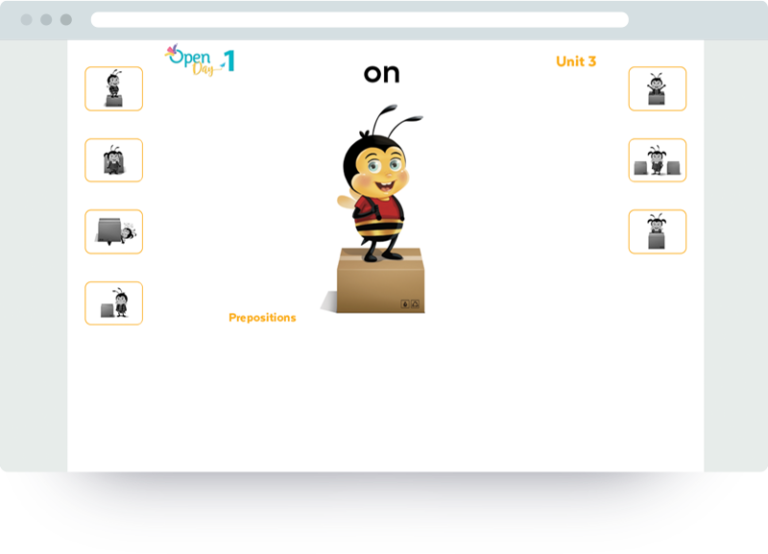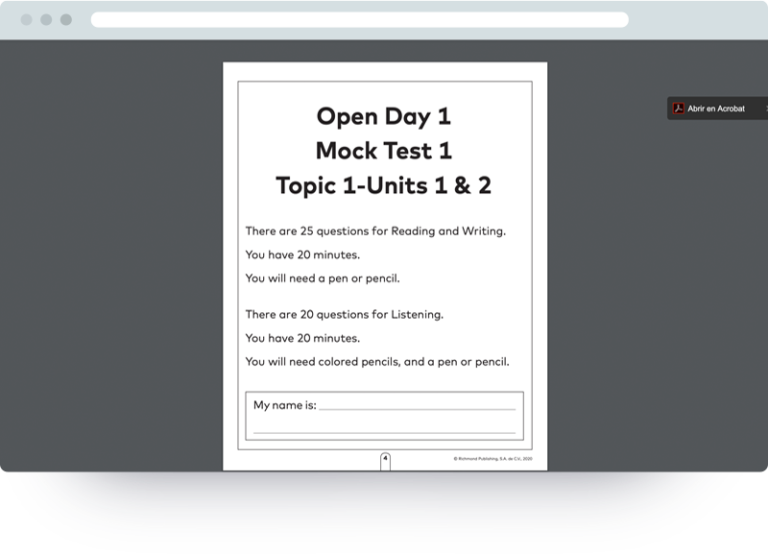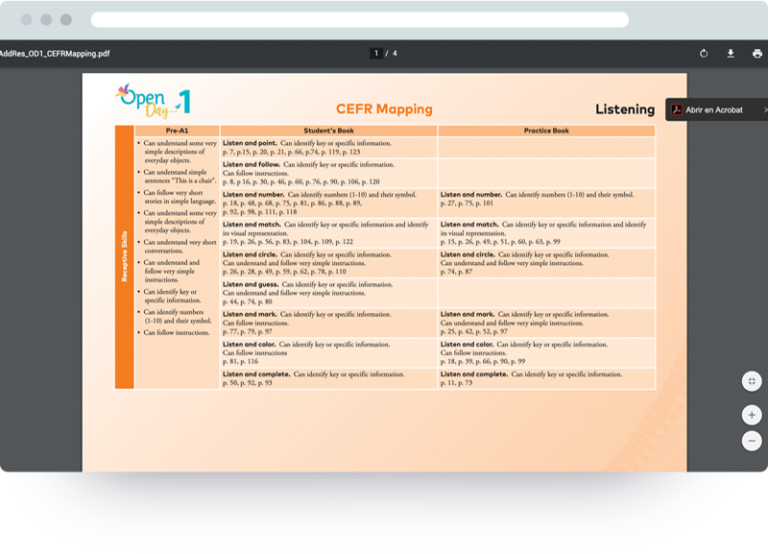Open Day
Open up the world, a day at a time!
Open Day’s topic-based approach connects issues about social responsibility, citizenship, and environmental awareness, challenging children to develop their critical thinking skills. The series’ Good Buddies characters accompany the students in their language-learning adventures and introduce us to different critically-endangered animals from around the world! Through their growing awareness of these threatened species, and inspiring nature videos, the children learn empathy, motivating them to grow into thoughtful, compassionate teenagers and adults who care about the world we live in and our responsibility for it and for each other.
-
Sample unit
-
Scope & sequence
-
Extra samples
With Open Day, students will:
- learn CEFR-benchmarked language and experience international young learners’ exam formats.
- explore content from other subjects, like geography and science (CLIL).
- practice Mindfulness, to increase self-awareness and enjoy life to the full.
- examine Citizenship skills and values, to recognize how responsible members in our community behave, and why.
- perform collaborative projects, personalizing and sharing their knowledge communicative tasks.
- reflect on life’s big questions to develop their critical thinking, by exploring, analyzing, drawing conclusions and proposing solutions to our daily lives.
- develop projects at home, together with their family, in Home Connection activities.
Components and resources
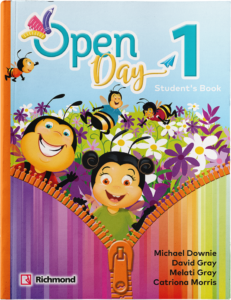
Student's Book
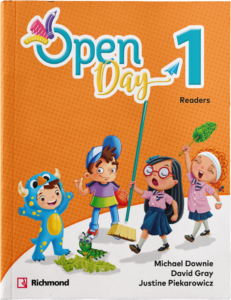
Reader
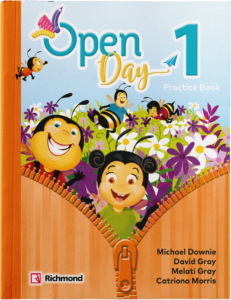
Practice Book
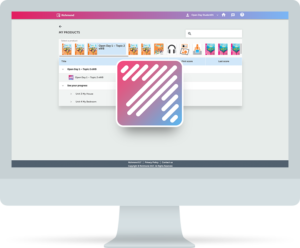
RLP
Learn more about Open Day: Student's Book
Every Student’s Book opens another world – and another endangered species and its habitat! A Welcome Unit introduces each level, recycling earlier content (Level 1 opens with functional classroom language). Then two complementary units develop a topic (four per level), meaning topics include an integrated Mindfulness program, Citizenship, CLIL, project work, international exam preparation, and the Good Buddies story with its threatened animal, as well as the essential vocabulary, skills, grammar and phonics practice! Students self-evaluate at the end of each topic and complete a fun home connection task.
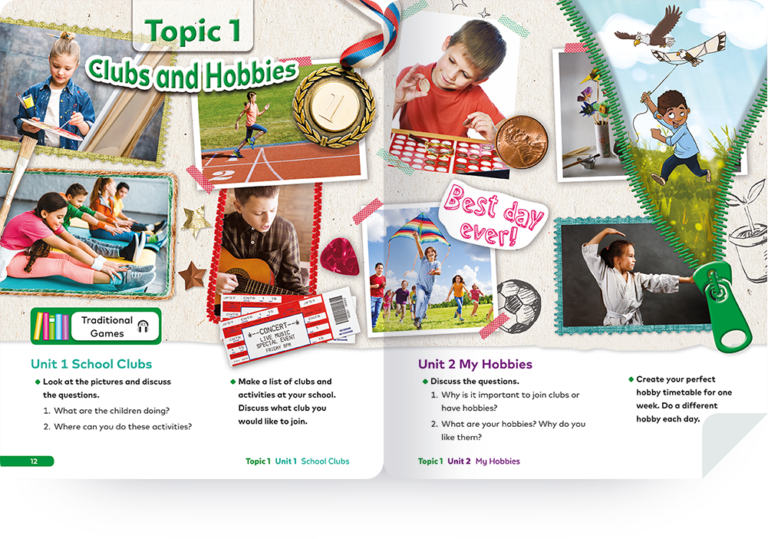
Topic Opener
A visual opening spread introduces each pair of units, getting us to start thinking about the topic and what we already know about it with some short activities.
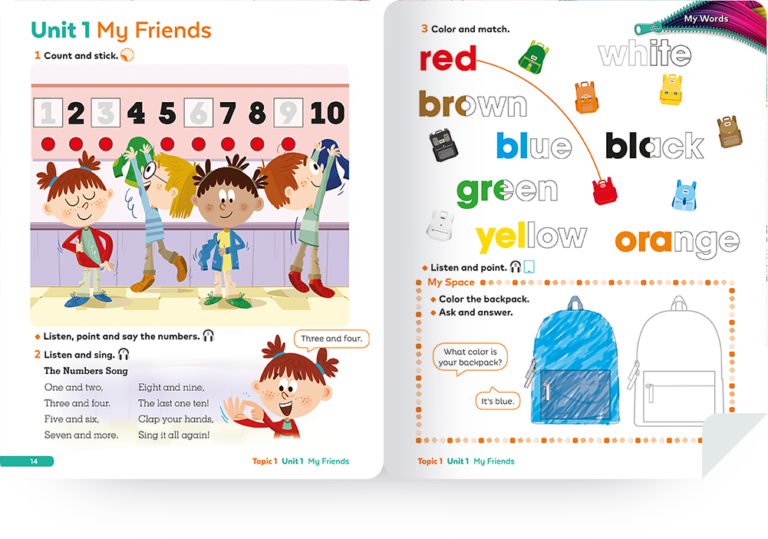
My Words/My Space
The two My Words pages present vocabulary in context. Students then personalize it as they practice, in the My Space section.
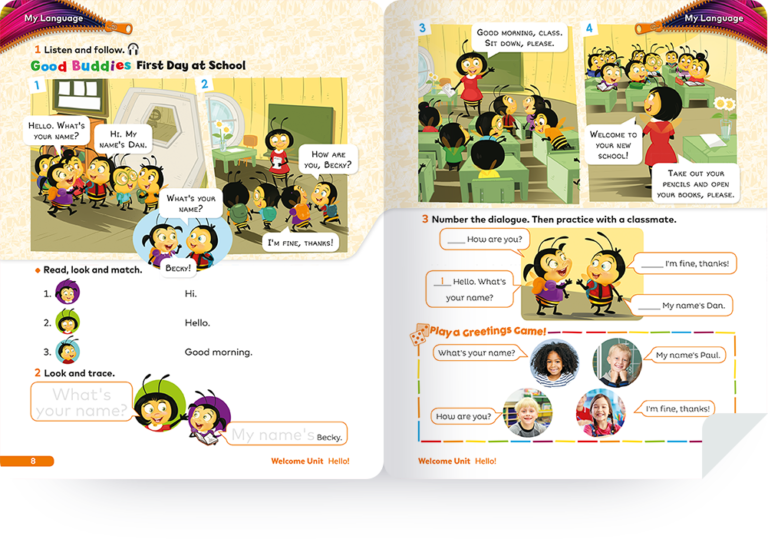
My Language
The Good Buddies characters present the unit language in a two-page comic story, featuring that level’s endangered animal. A third page reinforces a previous language point or focuses on a new one.
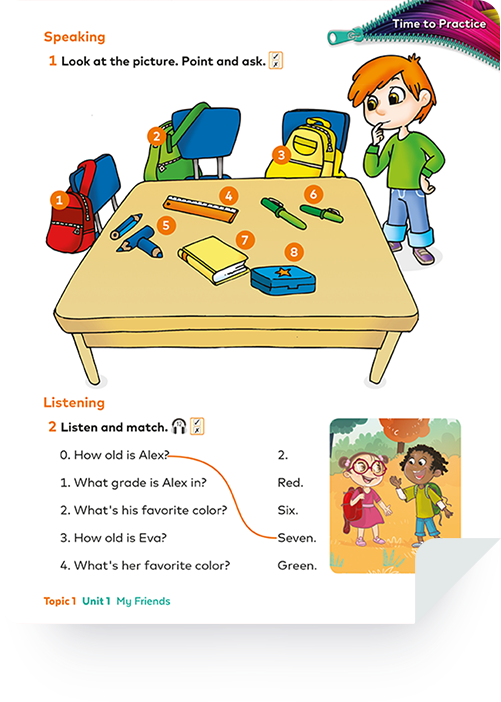
Time to Practice
Students reinforce new language in Time to Practice, practicing all four skills with international certification-type exercises: listening and speaking in the topic’s first unit and reading and writing in the second.
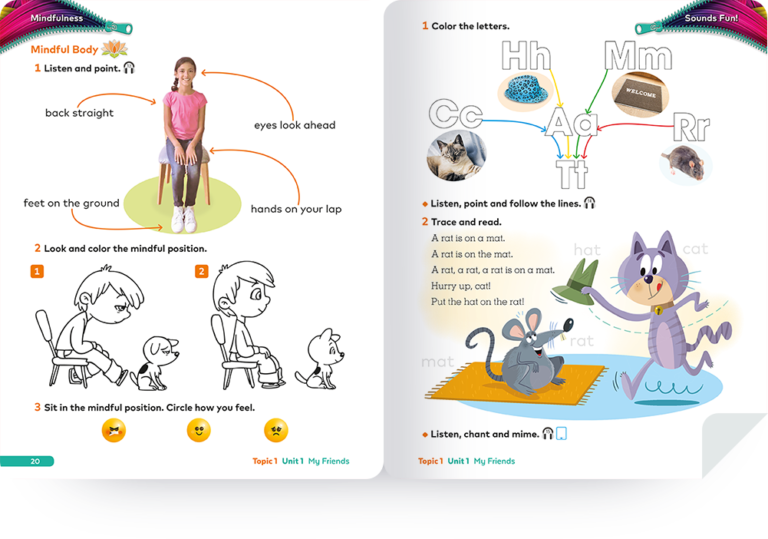
Mindfulness
Students learn how to focus their attention through awareness of their breathing, senses, feelings and emotions, with a whole page of mindfulness activities in an ongoing program!
Sounds Fun!
Students develop phonemic awareness and practice specific sounds with songs, tongue twisters and games. The higher the level, the more complex structures become.
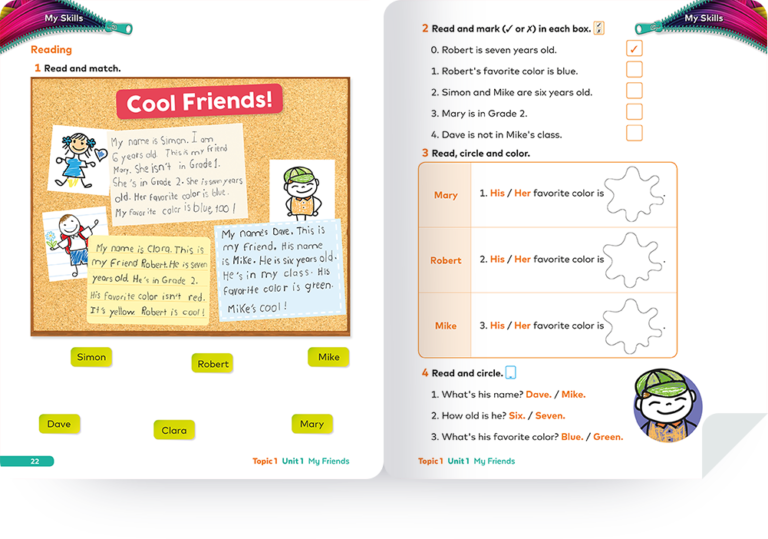
My Skills
Students learn to develop strategies for the four skills using many different task types and test-style activities. A scaffolded writing process includes brainstorming, organizing ideas in graphic organizers, and writing and editing drafts.
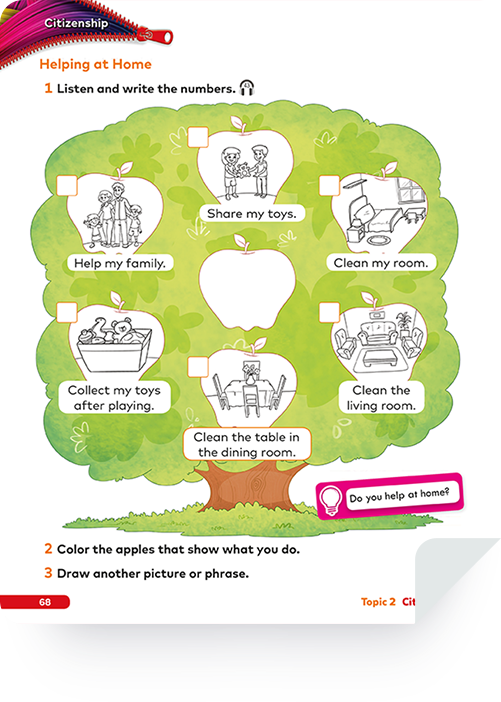
Citizenship
The Citizenship page activities encourage students to reflect on our values, and think critically about responsibility to our communities and our place in society.
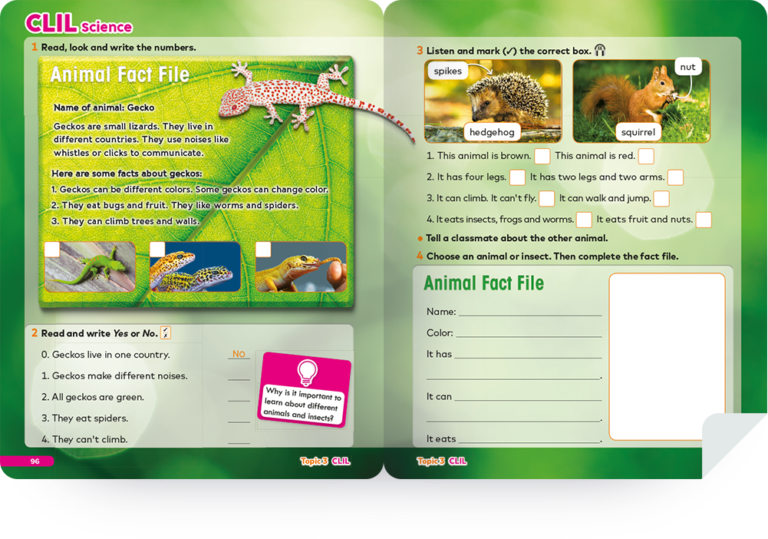
CLIL
With the two-page CLIL section, students can apply prior knowledge in a different content area, and sharpen their critical thinking skills.
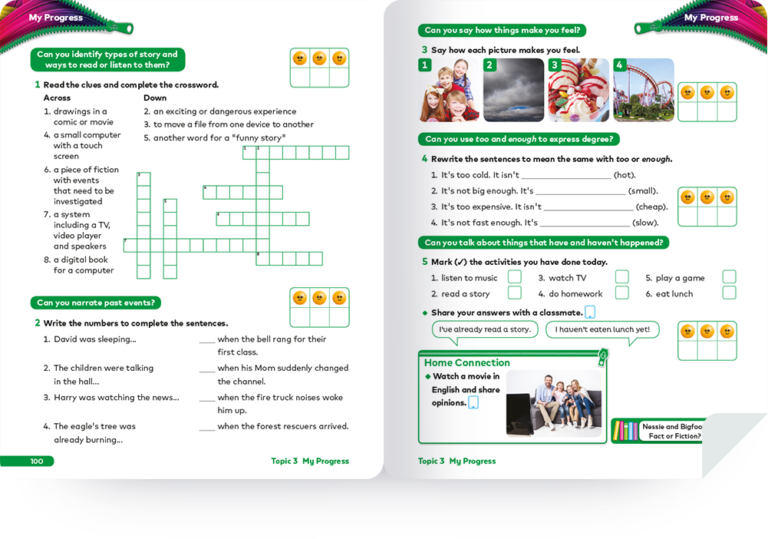
My Progress
At the end of each topic, students self-evaluate with Can you…? questions and short tasks, helping them reflect on their progress. A Home Connection activity invites the whole family to get involved, by doing a project together at home. Detailed steps are on the digital platform in English and the students’ native language.
Learn more about Open Day: Reader
Help students open their horizons with informative and imaginative reading texts! For each level of Open Day, there is a Reader with an additional text per topic – two fiction and two factual texts in total – so students can enjoy more extensive reading, and experience new vocabulary and language from each topic in meaningful contexts. Students can also listen to recordings of all the reading material to boost their understanding and reading for pleasure.
Learn more about Open Day: Practice Book
Does what it says on the cover, and more! Packed with activities, students can practice and reinforce language objectives and skills development independently or in class. The first five pages of every unit consolidate the Student’s Book My Words and My Language sections, students can test their memory with the comic strip Good Buddies Quiz, and explore the Reader further with specific activities at the end of each topic. Students develop their projects with helpful guidance from special detachable templates at the back of the book.
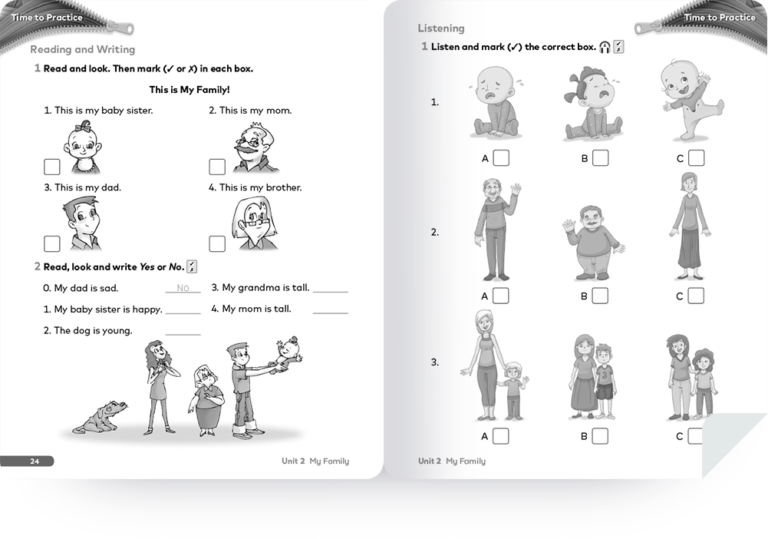
Time to Practice
Students planning to sit international certification exams can practice these types of activities in the two-page Time to Practice section.
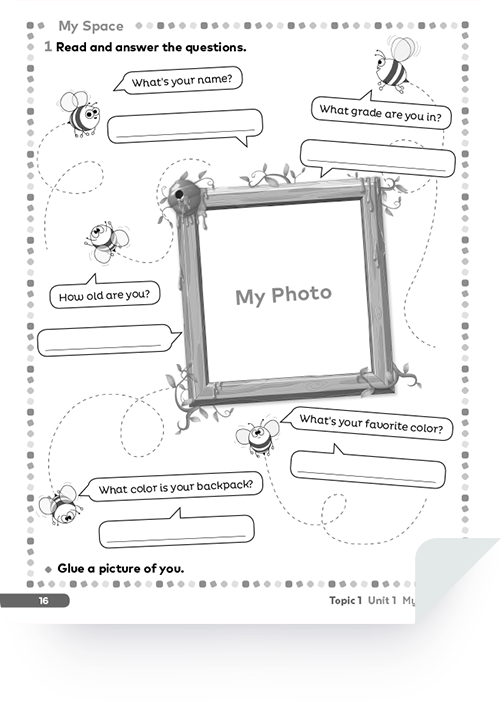
My Space
Students consolidate and personalize their learning with the activities on the My Space page.
Learn more about Open Day: RLP
With just a click, students can access digital versions of all the course print materials on our state-of the-art learning platform! Plenty of online resources complement these components, including audio recordings, interactive practice activities, bilingual instructions for the home connection task, color-coded wordlists, and the Reader in animated karaoke style.
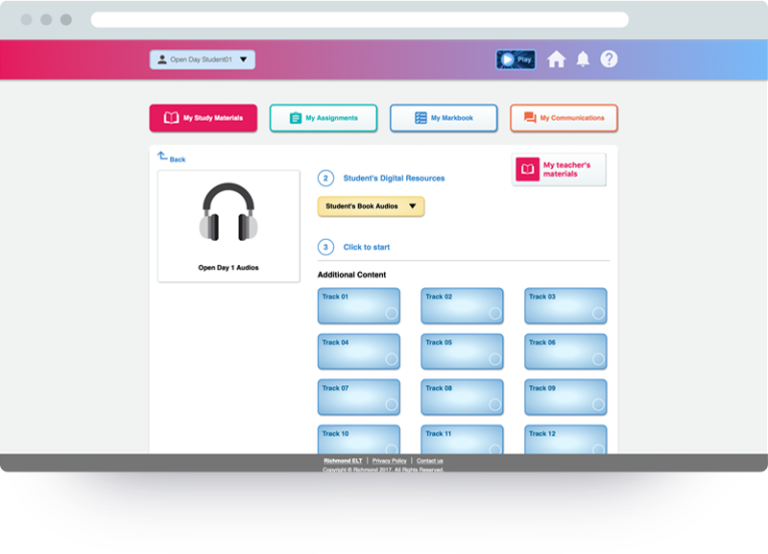
Audio
All the audio recordings for the listening activities in the Student’s Book and the Practice Book.
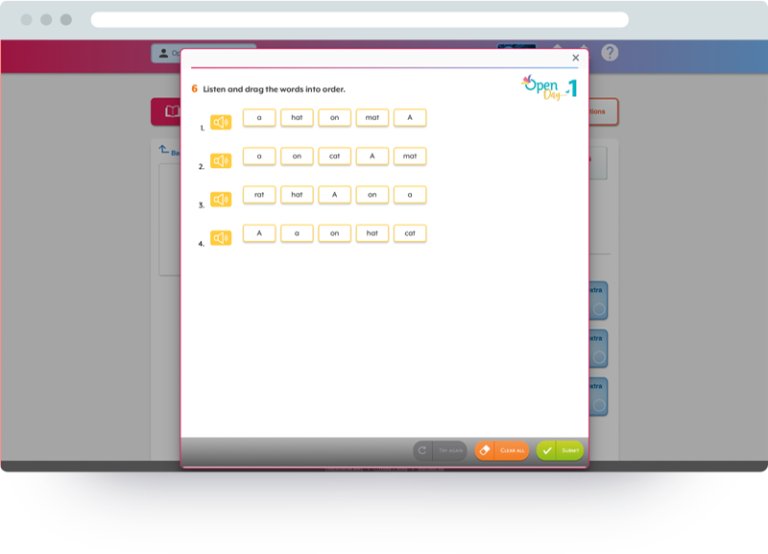
Online interactive activities
Extra practice to support classroom activities, indicated by the tablet icon in the Student’s Book and Teacher’s Guide.
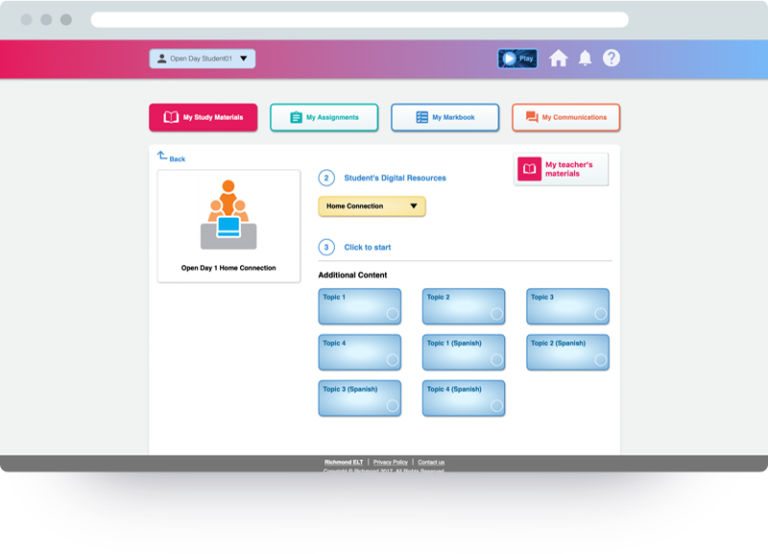
Home Connection activities
Detailed instructions for a fun project at the end of each Topic, in English and the students’ native language, so the whole family can join in and explore together.
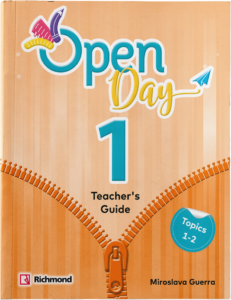
Teacher's Guide
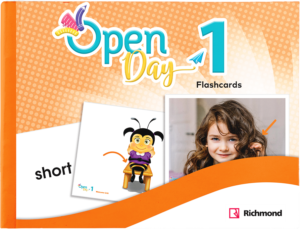
Flashcards
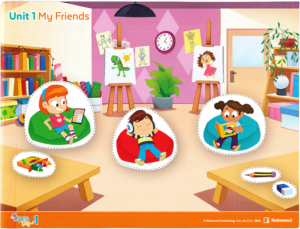
Posters

RLP
Learn more about Open Day: Teacher's Guide
The Teacher’s Guide gives you complete confidence! Step-by-step lesson plans, interleaved with the Student’s Book pages (with superimposed answers) for easy reference, include clear Objectives to help you focus on your students’ specific learning outcomes and show you other materials or course resources you’ll need for class. The Introduction explains the series’ concept and methodology, its components, their features, and the online resources. The Scope and Sequence summarizes the expected course outcomes, and two Activities sections give ideas on how to use the flashcards and posters every unit to present and review language. The Audioscripts and Practice Book Answer Key are at the back of the book.
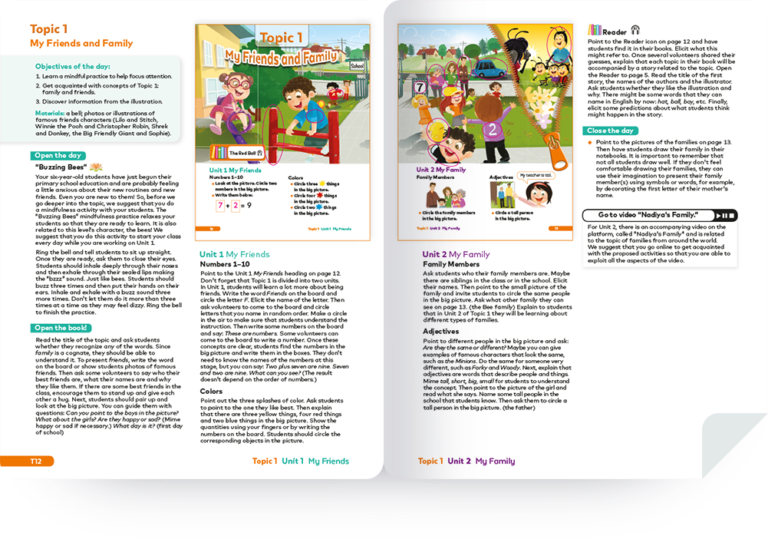
Topic Opener
The brief Topic introduction gives you tips and ideas on how to present the two units, a simple mindfulness activity, the corresponding Reader, the Vulnerable Animal Video and the high-interest, topic-related video.
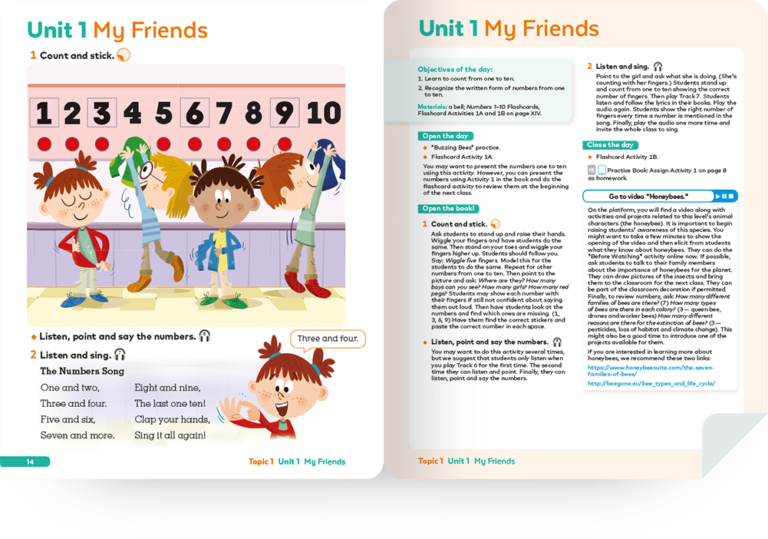
Open the day
The class opener starts with a mindfulness activity to help students connect with themselves and focus attention on their learning, and an activity to introduce the class topic or present/review vocabulary and language.
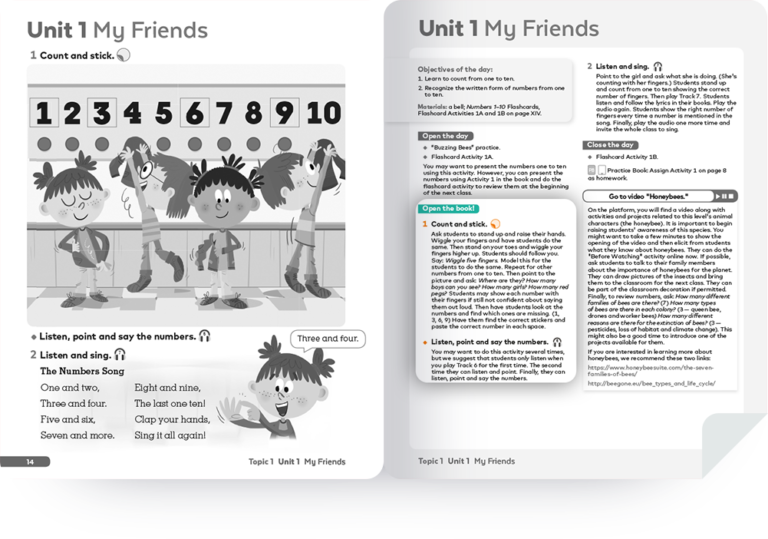
Open the book!
This stage details teaching steps for you to use the corresponding Student’s Book material, including suggestions on how to: scaffold each activity to assist your students’ learning; make the class flow; vary classroom dynamics (such as when and how to pair or group students); check activities; and support mixed ability classes.
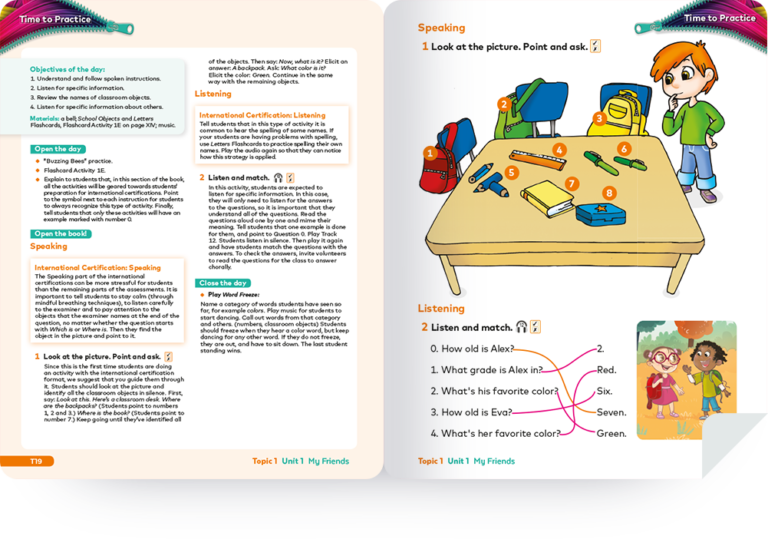
International Certification
These boxes accompany the tasks with the corresponding icon in the Student’s Book. They suggest strategies for how you can help and train your students to tackle these activities.
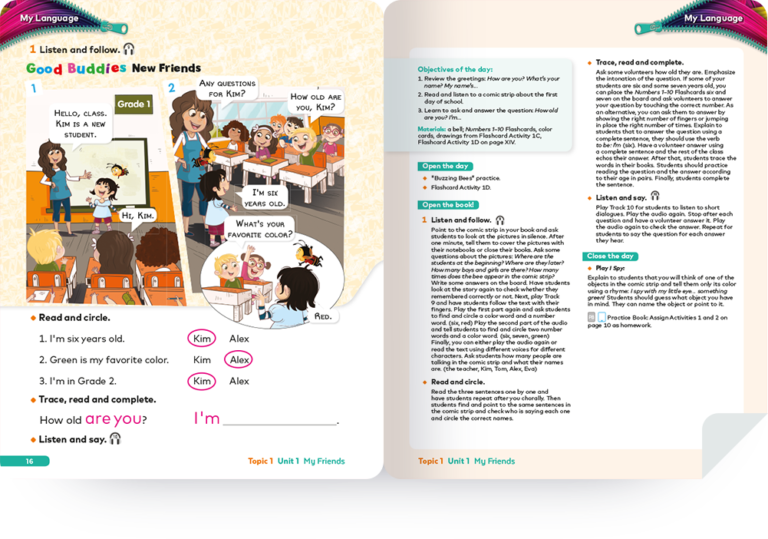
Language Presentation
These boxes give you ideas on how to present new language points using fun activities that might include posters, flashcards or realia.
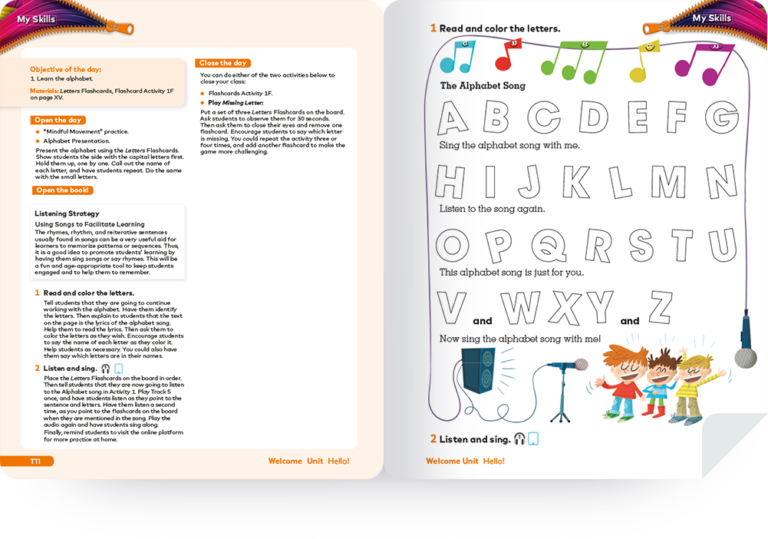
Skills Strategy
Check out these boxes on the My Skills pages for suggestions on developing specific subskills for reading, listening, speaking and writing.
Learn more about Open Day: Flashcards
Each level of the series comes with a set of flashcards to aid in the presentation and practice of key vocabulary.
Learn more about Open Day: Posters
Eight posters for every level (one per unit), with their own cutouts, create contexts for presentation and further practice of new language structures. The cutouts add changeable elements to each scene, making the posters more flexible, and controlled practice more communicative. The lesson plans and the Poster Activities section in the Teacher’s Guide explain when and how to use them.
Learn more about Open Day: RLP
Our trailblazing learning platform lets you access digital versions of all print materials, including electronic posters with drag-and-drop cutouts and flashcards with audio, as well as all the student resources. And like your students, you can easily access lots of additional resources online to enrich and support your classroom, like the Vulnerable Animal Video documentaries, topic-related videos, unit assessments and mock tests. You can also track your students’ performance in all the interactive activities and manage your classes.
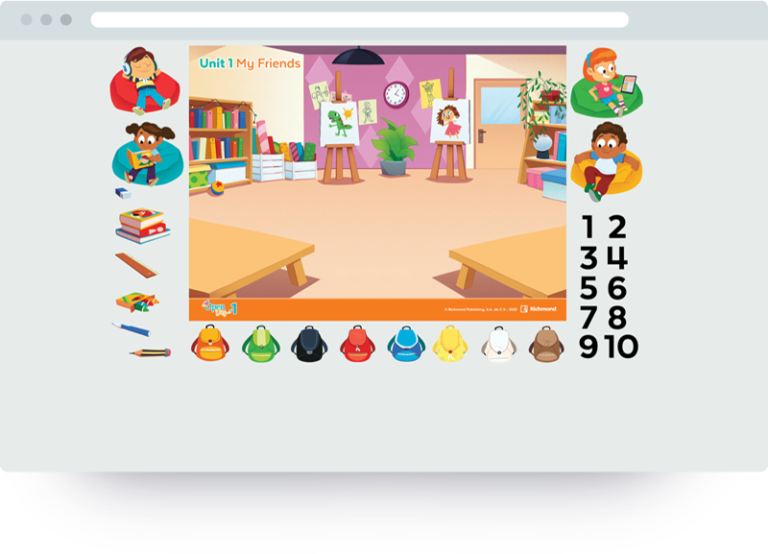
Digitized Posters
Project with drag-and-drop Cutouts, for communicative language presentation and practice in class!
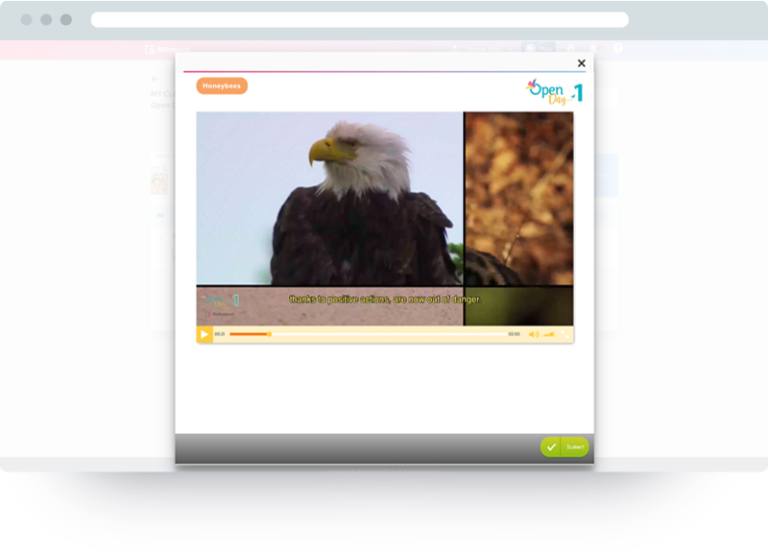
Vulnerable Animals Videos
A professionally produced documentary about each endangered animal encourages environmental awareness. Online lesson plans help you exploit them to the full and guide your students in an end-of-lesson project.
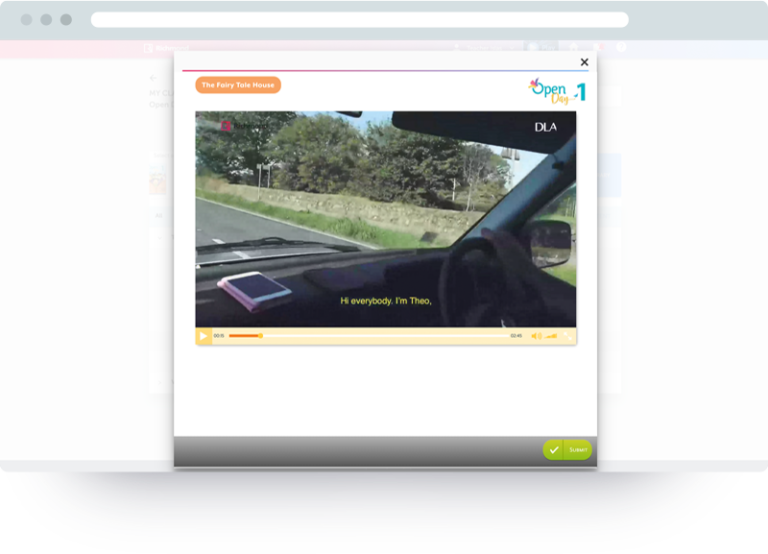
Topic-Related Videos
Present and explore each topic further, with four high-interest, real-life videos per level!
They include full lesson plans.
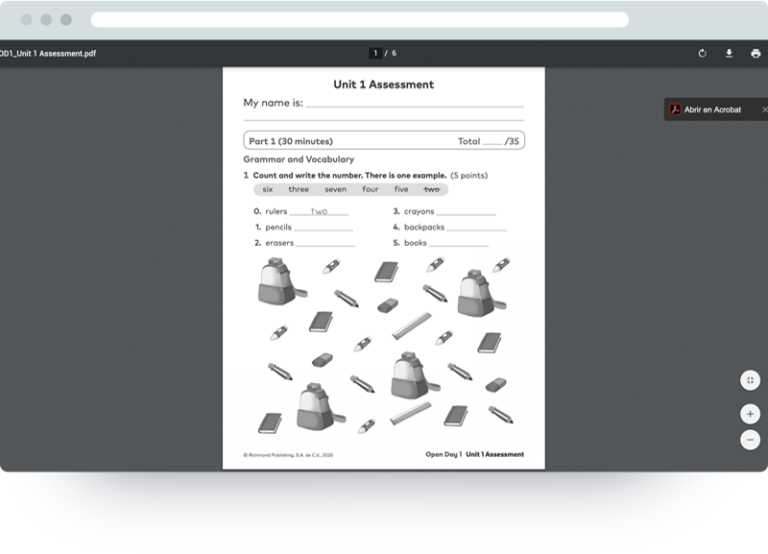
Unit Assessments
Both interactive (online) or downloadable (offline) formats, for easier evaluation.








